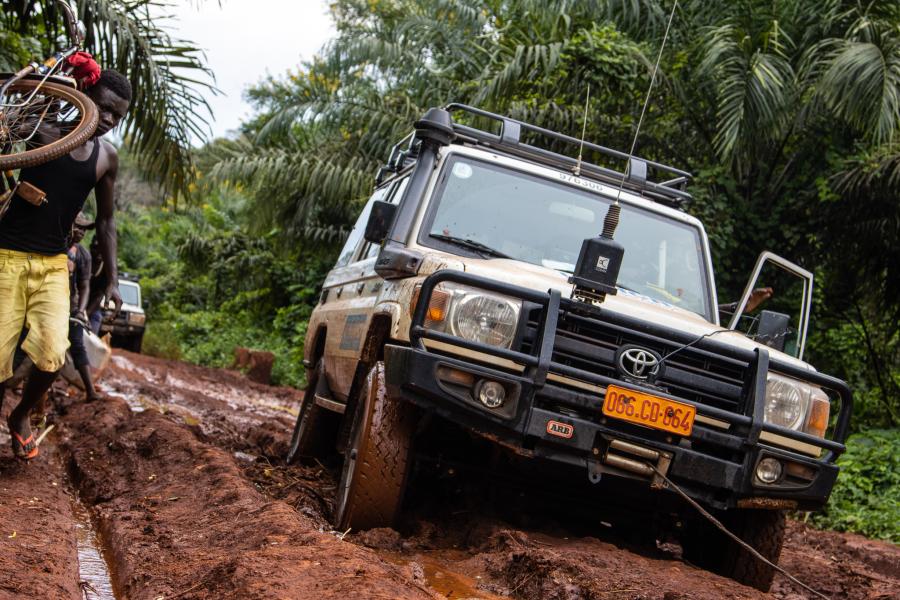Executive summary
As of December 2022, southern Africa hosted 9.1 million forcibly displaced people and returnees, of whom 6.6 million were internally displaced (IDPs) by conflict, nearly 1 million were refugees and asylum-seekers, and 1.5 million were IDP returnees. In addition, there were 398,000 people who were displaced internally by natural disasters and due to the impacts of climate change. Forced displacement in the region was mainly triggered by insecurity in the Democratic Republic of the Congo (DRC) and Mozambique, southern Africa’s most severe humanitarian crises. The region is also home to protracted refugee situations in Botswana, Malawi, Namibia, Zambia and Zimbabwe.
The operational context was plagued by socioeconomic inequalities, conflict and food insecurity, all aggravated by COVID-19, the effects of the war in Ukraine, the climate emergency and funding shortfalls. Gender-based violence and asylum backlogs were significant concerns in 2022, and the region also struggled with measles, Ebola, cholera, malaria and monkeypox. Moreover, countries were impacted by devastating tropical storms and cyclones, and prolonged droughts and floods continued to affect livelihoods. As a consequence, humanitarian needs increased, as did mixed movements of migrants and asylum-seekers.
To protect the asylum space and ensure the integration and inclusion of displaced people in national systems, UNHCR collaborated with stakeholders on capacity development and on the implementation of pledges made at the Global Refugee Forum and at the High-Level Segment on Statelessness in 2019. In 2022, Governments and UNHCR succeeded in reducing the regional backlog of asylum claims by 7%. Additionally, the asylum and statelessness action plans established with the Southern Africa Development Community (SADC) were endorsed by Member States in June 2022 and contributed to improving decision-making through the training of relevant personnel. However, the implementation of pledges was delayed, and by the end of the year only 14% of the 146 pledges had been completed, while 73% were in progress and 13% were at the planning stage.
Amidst the insecurity in the DRC and Mozambique, UNHCR and partners continued to deliver life-saving assistance to displaced populations. In particular, in alignment with the 2022 DRC Regional Refugee Response Plan, 71 partners worked together to respond to the needs of refugees from the DRC in Angola, Burundi, the Republic of the Congo, Rwanda, Uganda, the United Republic of Tanzania and Zambia. UNHCR also strengthened its emergency preparedness and response and implemented innovative projects to reduce the impact of climate change and to improve its own environmental footprint. UNHCR invested in reforestation, clean cooking, solar energy and projects to help make shelters more resilient, including in Mozambique in response to the devastating cyclone Gombe. Furthermore, UNHCR developed a regional climate action plan to guide future operational work and ensure that climate-resilience activities are anchored in an inclusive, human rights-based approach. UNHCR is assisting SADC in the development of a disaster displacement framework.
In 2022, UNHCR continued to support the implementation of activities to enhance refugees’ self-reliance. UNHCR and partners supported 76,600 refugee children (48% girls) to access education in southern Africa. Moreover, 396 scholarships were awarded to refugee scholars through the DAFI programme. A three-year project was launched in Mozambique to improve the socioeconomic situation of some 4,000 displaced people and host community members; in Zimbabwe, the Government made an additional 100 hectares available for agricultural activities; and in Zambia, 430 farmers were included in the input support programme for agricultural activities. Finally, UNHCR supported the voluntary repatriation of 21,100 people in the region in 2022, primarily to Burundi and the Central African Republic from the DRC, and to the DRC from Angola, South Africa and Zambia, an increase of 26.5% compared to 2021. UNHCR also submitted 6,839 people for resettlement and supported over 3,000 individuals to depart to third countries.
